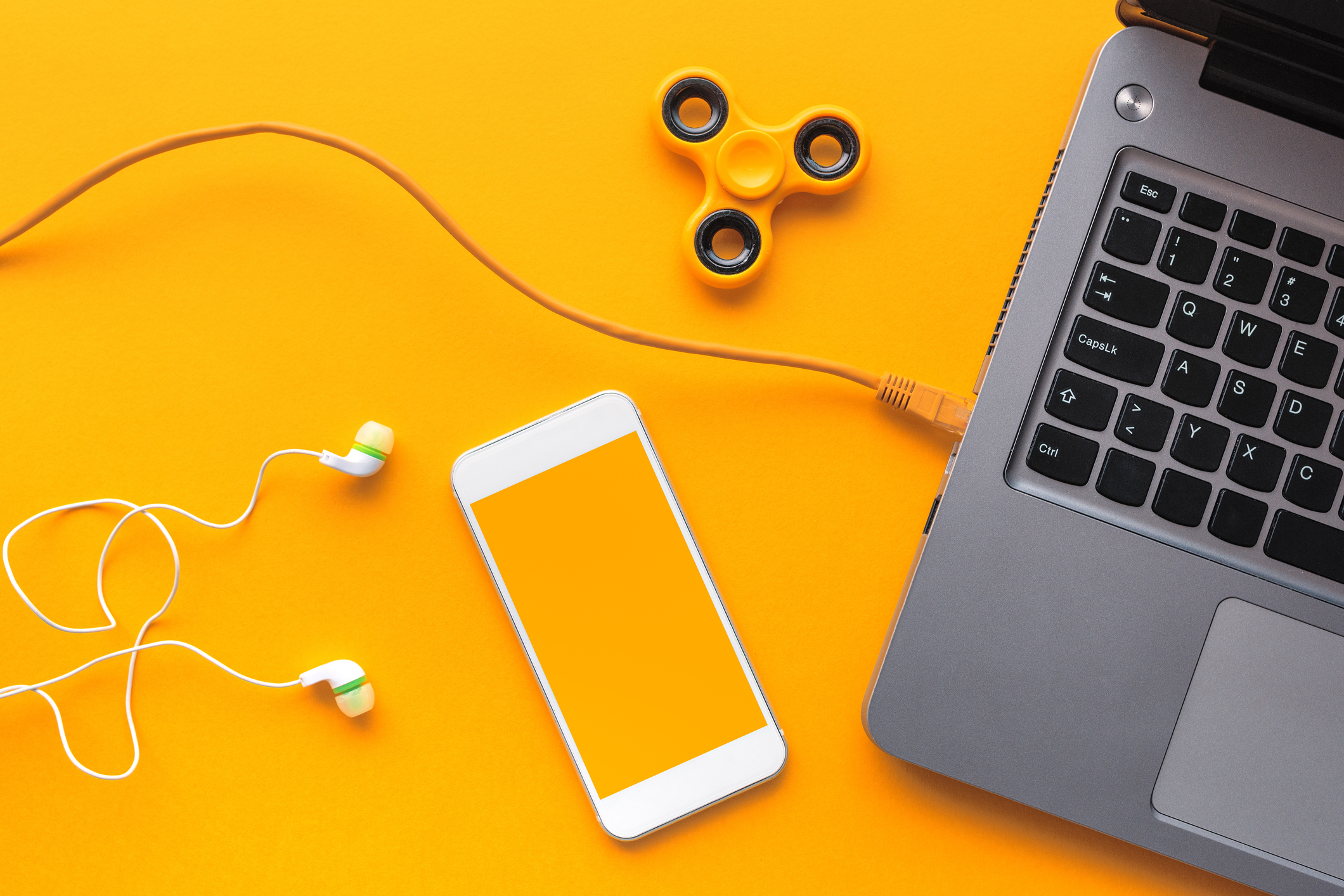Do you ever sit down to start working, quickly check your phone, and then completely forget what you were planning on doing? According to a New York Times story, you’re not alone. Recent studies show that we touch our phones about 2,617 times per day, and Americans spend half the day on their devices on average. The Times spoke to experts, students, and workers about how technology is fighting for our attention – and it’s winning. Here are a few quotes that inspire us to put our devices away.
“We don’t understand how modern technology and changes in our culture impact our ability to sustain our attention on our goals.”
Dr. Jesse Rissman Ph.D., a neuroscientist whose lab at UCLA studies attention and memory, spoke to the Times about the unanswered questions surrounding technology’s effect on our productivity. According to Rissman, the consequences of our excessive screen time may be altering the neurons in our brains and keeping us wired to sudden noises and notifications – also known as “bottom-up” attention.
“In the same way that you pull out a phone to do something and you get distracted, and 30 minutes later you find that you’ve done 10 other things except the thing that you pulled out the phone to do — there’s fragmentation and distraction at that level.”
Oxford-trained philosopher James Williams, who worked on search advertising at Google for over a decade, began to feel that his life was “crumbling” under his feet. Williams told the Times about the dangerous distraction that devices cause, and how we have lost our ability to focus on one thing at a time. “I felt like there’s something on a longer-term level that’s harder to keep in view, that longitudinal sense of what you’re about,” he says. When Williams spoke at a tech conference in Amsterdam last year, he asked over 250 designers in the room how many of them want to live in the world they’re creating – where technology is competing for our attention. He wasn’t surprised when not a single hand was raised.
“[Technology is] changing our ability to make sense of what’s true, so we have less and less of an idea of a shared fabric of truth, of a shared narrative that we all subscribe to… Without shared truth or shared facts, you get chaos — and people can take control.”
Tristan Harris, a former design ethicist for Google, quit the company five years ago and has since spoken publicly about his concern about humankind losing a “moral compass.” The constant pull of technology is about losing much more than our attention, he told the Times. Harris is convinced that the threat we are facing is one that can do damage not only to our attention spans, but to our morality.
“A lot of the media I consume has to do with ‘RuPaul’s Drag Race’… And when a lot of those videos end, RuPaul himself pops up at the very end and says, ‘Hey friends, when one video ends, just open the next one, it’s called binge viewing, go ahead, I encourage you.’”
Morgan Griffiths, a student at Tufts University, was assigned homework for her class called, “How to Pay Attention,” taught by professor Nick Seaver. Seaver asked his students to analyze how an app or website captured their attention and then profited from it. Griffiths told the Times about her YouTube habits, and how the corporations behind her binge-watching are benefitting from her uninterrupted attention to their stream of videos. Her classmate, Jake Rochford, chose Tinder, noting the grab of the app’s “super-like” button. “Once the super-like button came into play, I noticed all of the functions as strategies for keeping the app open, instead of strategies for helping me find love,” he said.
“A generation has grown up that has lived a very unsatisfying youth and really does not associate their phones with any kind of glamour, but rather with a sense of deprivation.”
Professor Sherry Turkle, a sociologist and psychologist at MIT, told the Times that devices have introduced a new dynamic among today’s youth: competing for their parents’ attention. The attention economy is not only affecting children, but is affecting adults as well, and it’s taking a toll on American households–creating an environment in which children vie with screens in order to get the chance to engage with their parents.
Follow us here and subscribe here for all the latest news on how you can keep Thriving.
Stay up to date or catch up on all our podcasts with Arianna Huffington here.


